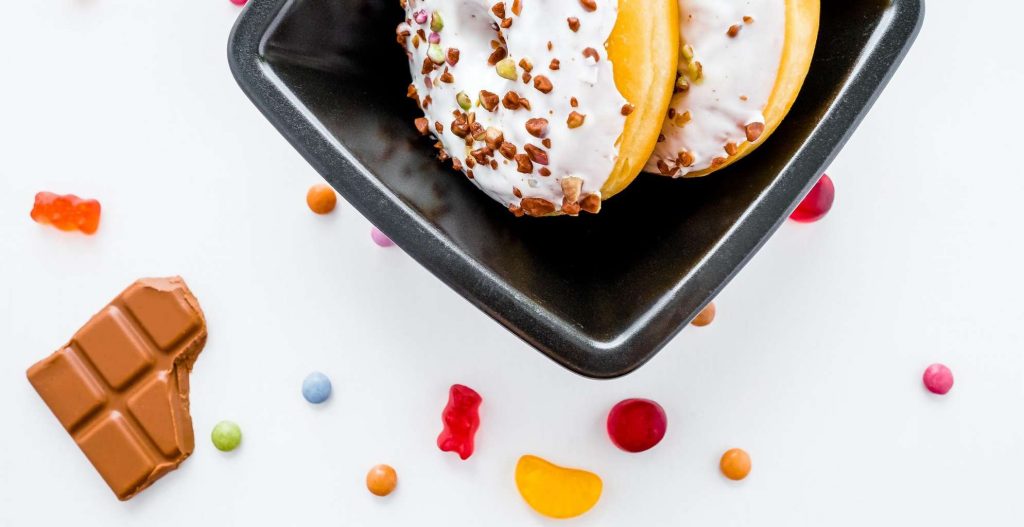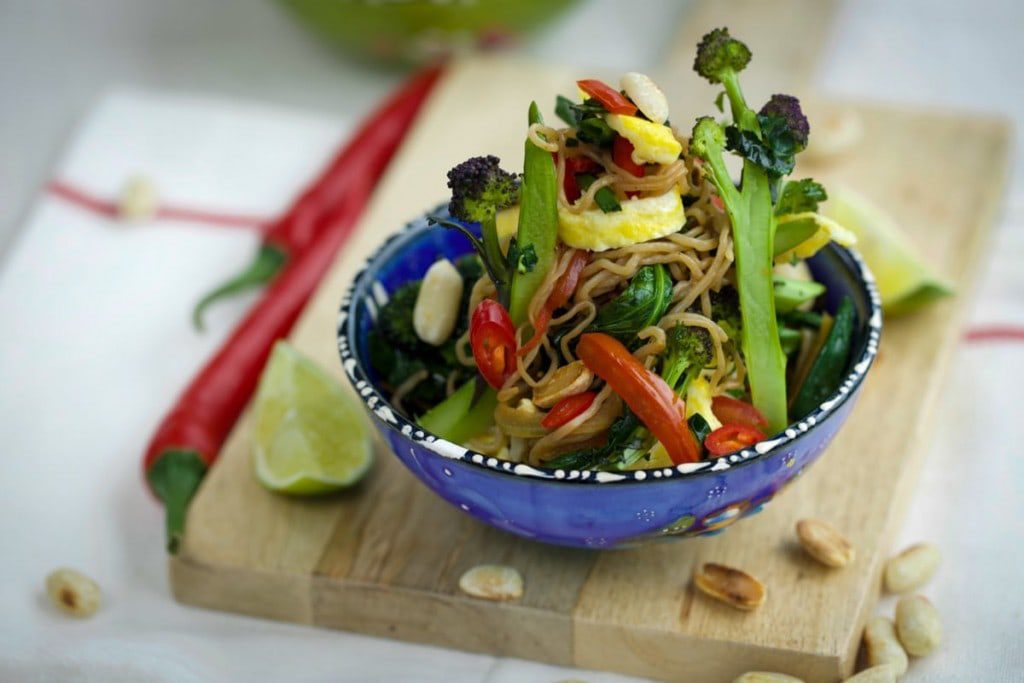Let’s begin by explaining what Insulin is.
Insulin is a hormone, produced by the pancreas. Its production is stimulated by raised glucose levels in the blood. The function of insulin is to absorb glucose from our blood into our tissues to use it for energy or to store it as glycogen or fat. As a result, it helps to regulate glucose in the blood, preventing it from getting too high.
What is insulin resistance?
When we consume carbohydrate-rich foods such as sugar, grains, fruit, or starchy vegetables, they are broken down in the gastro-intestinal tract into glucose. Glucose passes into our bloodstream where the insulin aids its transport into the cells to be used for energy. When we consume an excess amount of refined carbohydrate foods (sugar, bread, white pasta, white rice) it results in a blood sugar spike and the body releases an excess amount of insulin. Short term, our blood glucose levels will then plummet causing sugar cravings, energy dips, low mood etc.
When this occurs over a longer period of time – excess carbohydrate consumption, high insulin release – cells in the muscles, body fat, and liver can become de-sensitised to the effects of insulin leading to a build-up of glucose in the blood. This is called Insulin Resistance. It puts an individual at a high risk of developing Type 2 Diabetes as well as contributing to a host of other health concerns outlined below.
What are some of the causes of insulin resistance?
With any health condition, genetics will play a role, therefore it is always important to be aware of your family history. Did your parents suffer from type 2 diabetes, high blood pressure, or cardiovascular disease? If so, you may be more sensitive to carbohydrates and more susceptible to insulin resistance. A person’s age and cultural background are also contributing factors. However, other causes include being overweight, particularly carrying more body fat around the middle – having an ‘apple’ body shape. A lack of exercise, smoking, and not enough sleep can all contribute as well. Read more in this article by Diet Doctor on additional reasons for developing insulin resistance.
Symptoms associated with insulin resistance include the following:
- High blood pressure
- Raised blood sugar (and fasting blood sugar) levels
- High triglycerides
- Low HDL cholesterol
- Large weight circumference
Insulin resistance can result in the following health issues
- Polycystic ovary syndrome (PCOS)
PCOS is a reproductive disorder that can make it difficult for some women to get pregnant, depending on the severity. It has been shown that women affected by PCOS have significant insulin resistance, independent of being overweight.
- Pregnancy
If a woman has insulin resistance going into pregnancy she is at a higher risk of developing gestational diabetes.
- Type 2 diabetes
As mentioned above, insulin resistance puts an individual at a much higher risk of developing Type 2 diabetes.
- Cardiovascular disease
A person’s risk of having a heart attack or stroke doubles when they have insulin resistance. According to the International Diabetes Federation, it also triples the odds that the heart attack or stroke will be fatal.
- Non Alcoholic fatty liver disease (NAFLD)
NAFLD is another growing problem. Insulin resistance can lead to damage of the liver.
Insulin Resistance Diet
The good news is that simple dietary changes can be highly effective at reducing insulin resistance and thereby lowering one’s risk to Type 2 diabetes and other health issues outlined above. One main dietary plan is to follow a low-carb diet since carbohydrates are the source of glucose which triggers the release of insulin. A low intake of carbohydrates results in low insulin production resulting in widespread catabolism such as energy production and breakdown of body fat reserves. Thereby helping to maintain a healthy weight.
Insulin Resistance Diet Plan
Here are some simple tips and changes to reduce your risk of developing insulin resistance.
Breakfast
Replace your grain-based cereals or morning toast with eggs & veg or Maggie’s Wholesome Low Carb, grain free soda bread topped with a nut butter
Try a smoothie with low carb fruits such as berries, veggies such as spinach, and healthy fats such as avocado or nut butter, thinned out with water or almond milk.
Snacks
Aim for veggie sticks & nut butter, olives & cheese, ½ avocado & hummus, or a boiled egg.
Main meals
Aim for whole grains such as brown rice or brown pasta, but keep them to ¼ of your plate, or better still, replace grains and potatoes with low carb veggies such as leafy greens, bell peppers, mushrooms, aubergine. Exchange spaghetti with courgetti or rice with cauliflower or broccoli rice! Try Maggie’s Lower Carb Brown Rice as an accompaniment or her Low Carb, Grain Free Pumpkin, Tomato and Oregano Focaccia for a low carb breakfast or main meal option.
Lifestyle factors
It is also important to consider lifestyle factors here. Some key changes required include:
- Stop smoking
- Slowly begin to exercise – you may need to check with your healthcare practitioner first, but aim for exercise to suit your fitness level and physical ability
- Consider relaxation techniques if you find you have ongoing stress in your life.
See our additional blog Low Carb Diet for Beginners if you want to read more on this topic!












